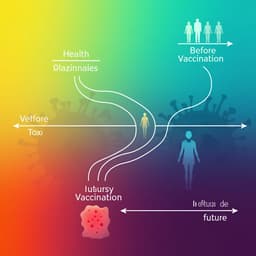
Medicine and Health
Persistence in risk and effect of COVID-19 vaccination on long-term health consequences after SARS-CoV-2 infection
I. C. H. Lam, R. Zhang, et al.
This comprehensive study involving over a million SARS-CoV-2 patients, conducted by Ivan Chun Hang Lam and colleagues, unveils the long-term health risks of COVID-19 infection and highlights the protective role of vaccinations. Discover how complete vaccination can significantly reduce the risk of major health issues and mortality in the months following infection.
Related Publications
Explore these studies to deepen your understanding of the subject.







